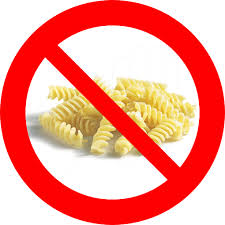I admit to being a little late to the game in hearing about the life-changing magic of tidying up made popular by the younger, non-felonious Martha Stewart of Japan, Marie Kondo, who has paradigm shifted the formerly dreary and anxiety filled chore of de-cluttering one's living space (and, dare I say, making it
almost enjoyable).
In case you are even further behind the 8-ball than I on this pop cultural phenomenon,
The Life-Changing Magic of Tidying Up: The Japanese Art of Decluttering and Organizing is not only an international best seller whose author was named one of the 100 most influential people in the world by Time magazine in 2015, the KonMari method (as it's known) is a metaphor for ridding yourself of the emotional baggage tied up with your $#!+ load of stuff.
Which includes clothes that are toolargeortoosmall, the stuffed bear your 16-year-old boyfriend wholatercheatedonyouwithyourbestfriend won at the county fair, and the tapioca beads sitting in your cupboard because two years ago whileinashoppingtranceatSafeway you had the ephemeral desire to make scratch tapioca pudding. Which, of course, you never did.
The signature concept of the KonMari method is to pick up each item in your home and ask yourself the profoundly simple question, "Does this spark joy?"
(Obviously, there is a lot more to it and I highly recommend you purchase the book to learn all the secrets, including how to properly fold socks.)
I have already begun applying the KonMari method to my clothing and am astounded by how many items I was able to discard by asking myself what I wanted to keep instead of what I wanted to get rid of.
Now that may seem like a small difference, but it turns out this counter-intuitive filtering method yields dramatically different results in how many Glad bags you tote off to the Goodwill or dump in the trash. We tend to hold on to things for perverse reasons, such as feeling guilty that we bought them in the first place or having a sentimental attachment because someone gave them to us.

For instance, using the KonMari method on a scarf your mother gave you for your birthday, you would ask yourself "Does this spark joy?" And if the answer is "no," you would thank the scarf for being a reminder of your mother's love and inform it you are now going to help it find a new home where it will be loved and appreciated.
Or let's say you bought a dress on a whim two years ago but never found an occasion to wear it. You might say, "Thank you for that moment of joy I felt when I purchased you, but it turns out we are not really a match; and now I will set you free so that you can find you a better owner."
Of course, you do not really have to make a goodbye speech for each item you discard, but if you're having trouble letting go it is surprisingly helpful.
The main point is the items we
hoard store in our homes that we do not use or love impart negative energy every time we interact with them. They figuratively weigh us down by making us feel guilty, wasteful or ungrateful. They also create clutter, making it harder to find the items that
do bring us joy.
By lightening our physical load we lighten our emotional load, and this liberating feeling carries over to other aspects of our lives.
Whether it's a friend to whom we no longer feel a connection or a food we eat just because it's sitting on the table, once we get in the habit of choosing things that bring us joy we are less likely to reflexively settle for whatever happens to be there.
I was reminded of this principle the other day when a friend at work offered me a Keebler chocolate chip cookie from her lunch sack. At one time I might have accepted it, even though packaged cookies don't really appeal to me. But these days, I am more selective, and on the rare occasions I eat a cookie it has to be home made or from a good bakery.
Interestingly, the KonMari method promises that if we follow its principles we will never rebound and have to wade through a huge household mess again, which is similar to losing weight and never gaining it back. By consciously seeking joy instead of driving through life on autopilot, we are bound to make better choices that will ultimately make us happier and healthier.
For more information on the KonMari method, watch Marie Kondo's
Google Talk or check out my favorite KonMari vlogger Lavendaire
here.
 What's weird is that Carol could have easily responded with some equally snarky comment about her co-worker's hyper-carby meal and how sleepy she and the others would feel after lunch. But having been raised by non-wolves, she just smiled and said "yes" while smarting inside over the rudeness of being called out for eating differently.
What's weird is that Carol could have easily responded with some equally snarky comment about her co-worker's hyper-carby meal and how sleepy she and the others would feel after lunch. But having been raised by non-wolves, she just smiled and said "yes" while smarting inside over the rudeness of being called out for eating differently. 











